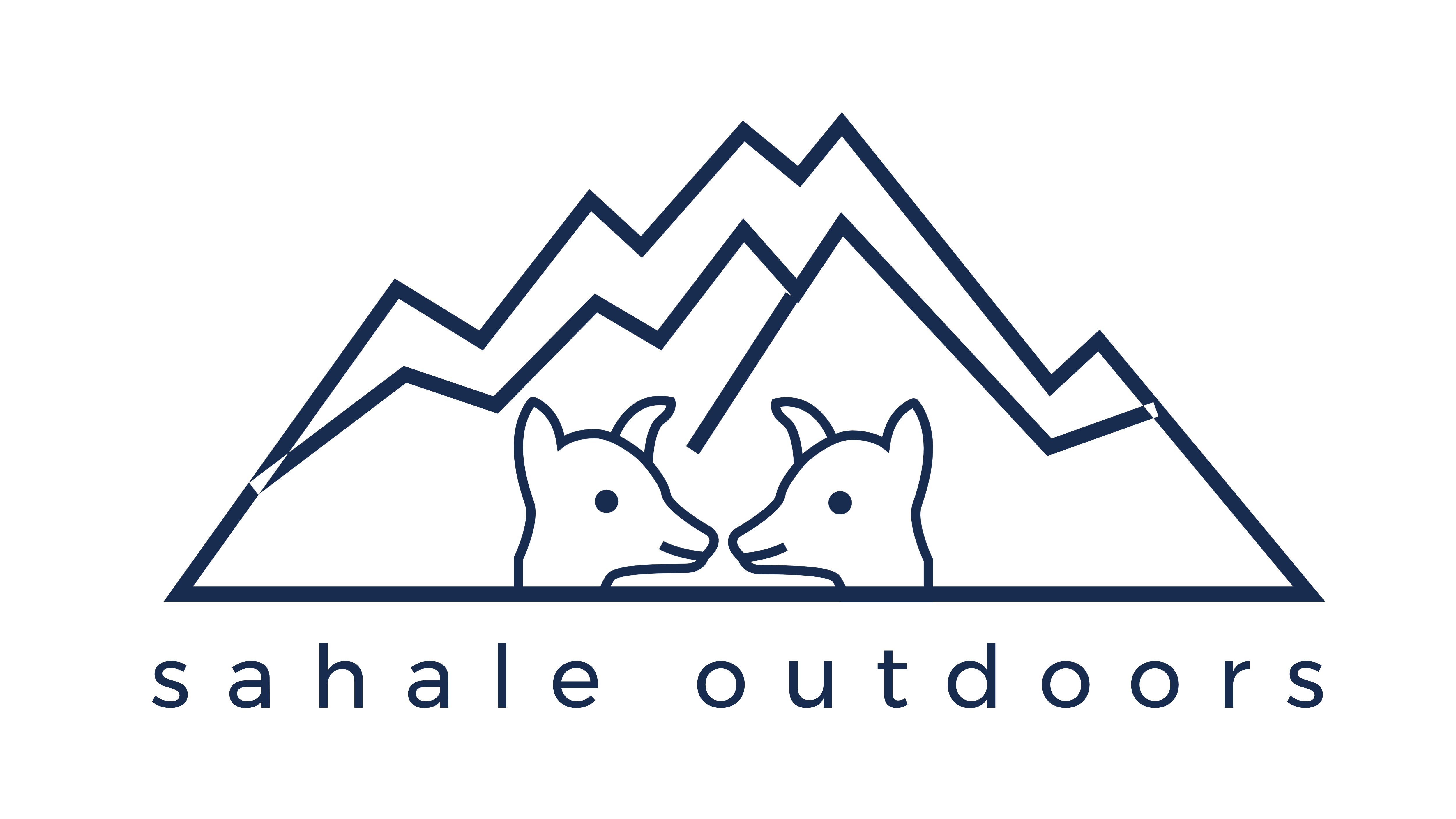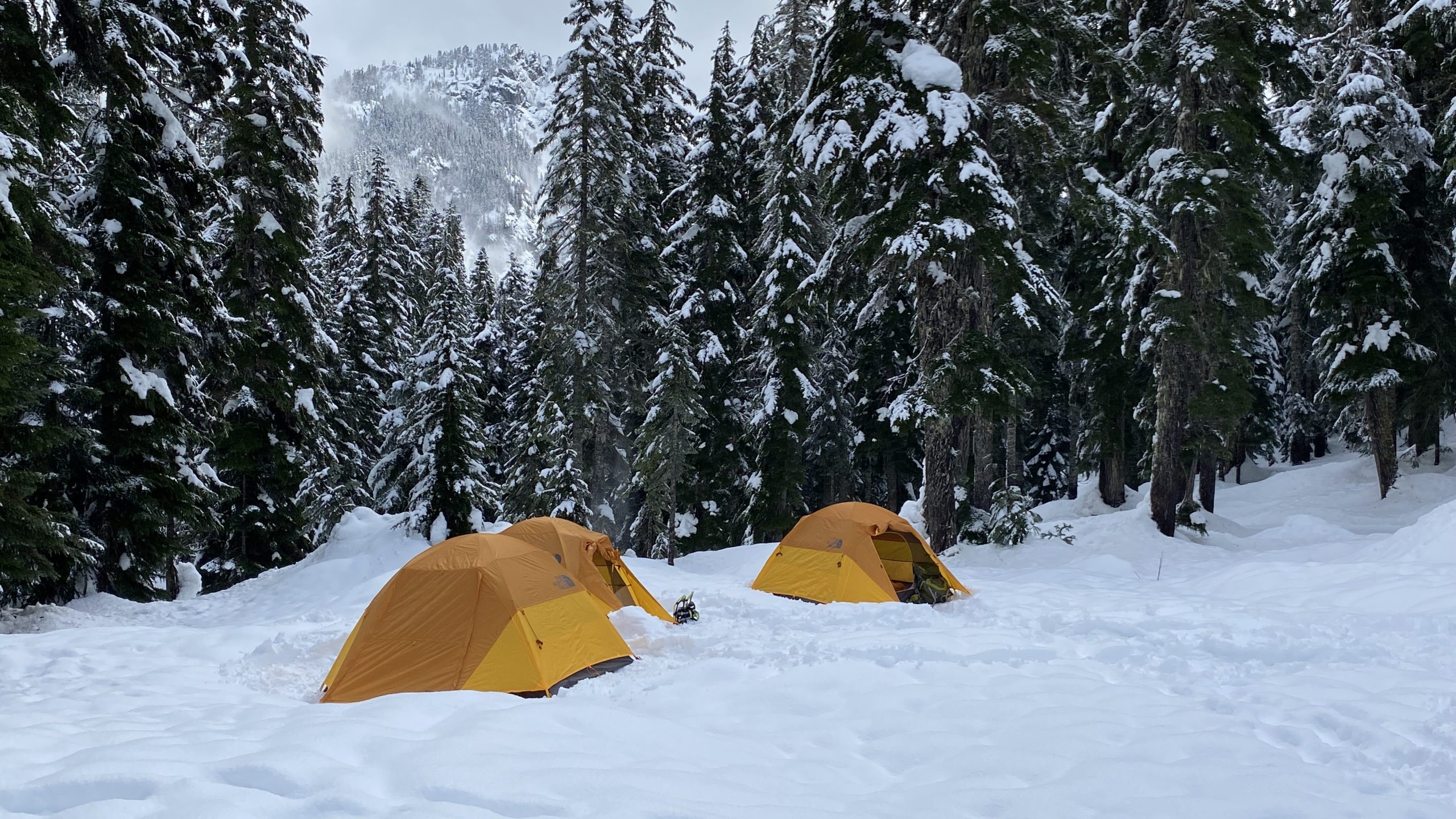
Snow Camping
Snow Camping
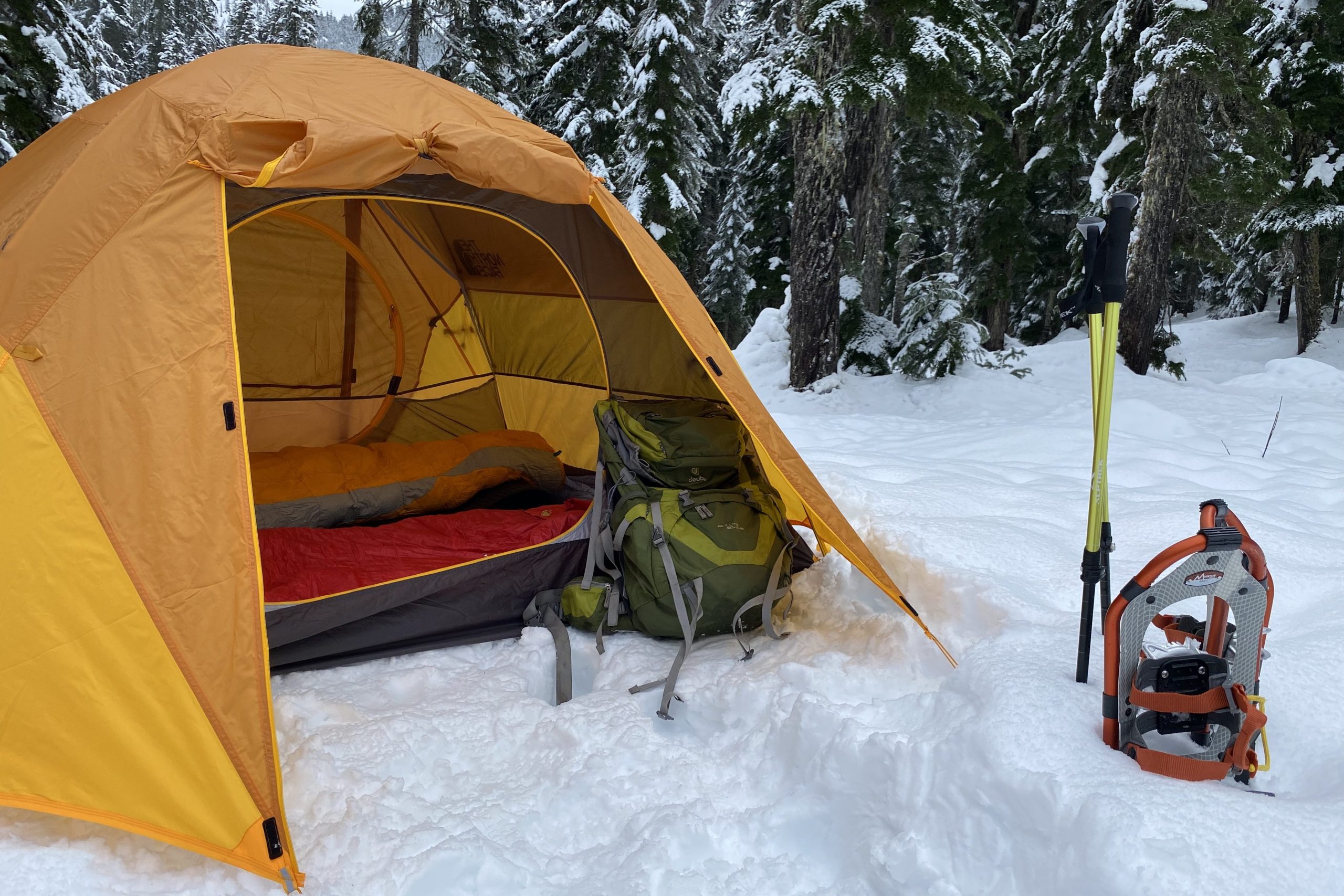
Snow camping is a great a way to experience the joys of the outdoors year round! Learn how to avoid common winter adventure mistakes to stay warm, dry, and confident in the backcountry no matter what the season. Whether it’s cupping your hands around a hot cup of hot chocolate or snuggling into your warm sleeping bag in the crisp, snowy mountain night, you’ll have unforgettable experiences that will build your outdoor skills and prepare you for more winter adventures. These trips take place at Snoqualmie Pass, with beautiful winter views.
Besides teaching the basic skills of camping in snowy conditions, this clinic includes avalanche awareness and snow shelter building focuses, as time and snow conditions allow. Bring your friends or make new ones on this adventure and learn how to manage risk, have fun, and stay comfortable even in the extreme conditions of high elevation winter forests.
Trip Details
Itinerary
- Day 1: Meet at 8 AM at Sahale Nature Center and transport to camping area. Hike in and set up camp. Build kitchen area and bathroom area.
- Snow shelter building depending on conditions.
- Day 2: Breakfast, hike out, and return to the Nature Center around 2 PM
Learning Goals
- Winter camping skills including layering, gear selection, snow tent set-up, camp set-up, and cooking in the snow.
- Gear management to stay warm and dry.
- Plants and animals in winter
- Snow shelter building
- Cultural history
Gear Provided
- Tents
- Backcountry sleeping pads (if requested)
- Sleeping bags (if requested)
- All meals from lunch the first day through breakfast on the second day
- All entrance fees, permits and passes
- First-aid kit and satellite phone
- Group kitchen and food service gear
Highlights
Snow – Forests – Camping
Difficulty Level
Easy-Intermediate: Little elevation gain and loss, snowshoeing
2026 Schedule:
February 28-March 1
Book Now
Includes gear rental, food from lunch on the first day to breakfast on the second day, and all entrance fees, permits, and passes.
Our mission is to make outdoor recreation accessible to all. If you cannot afford the total trip cost, request sliding scale pricing here:
Photo Gallery
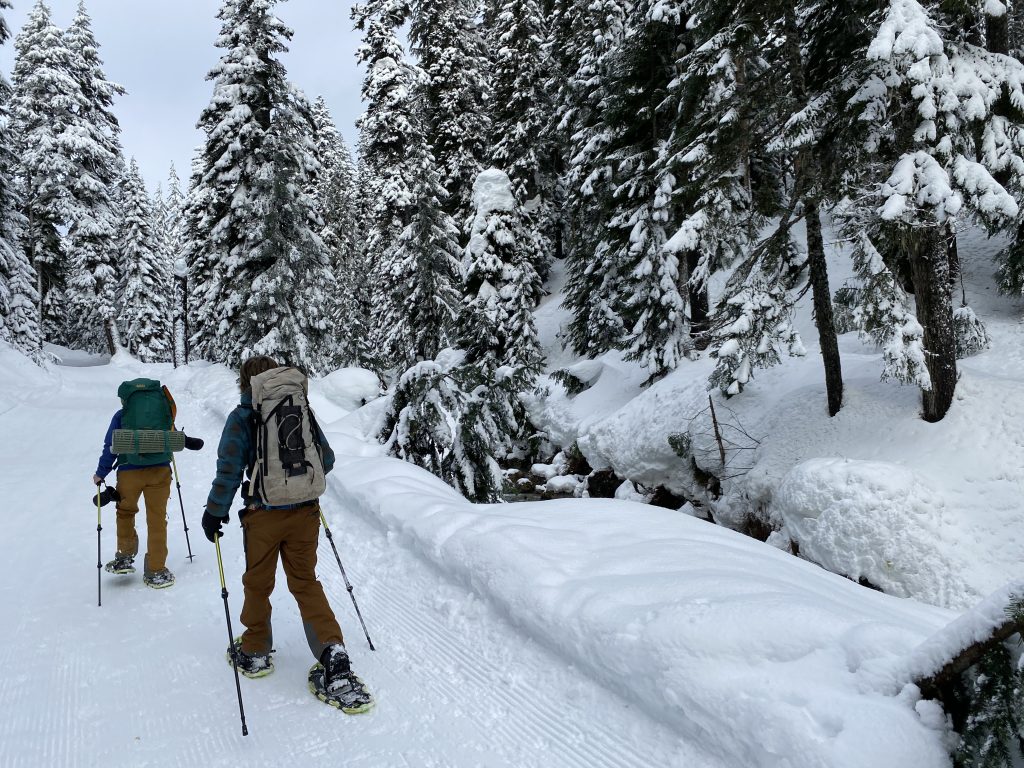
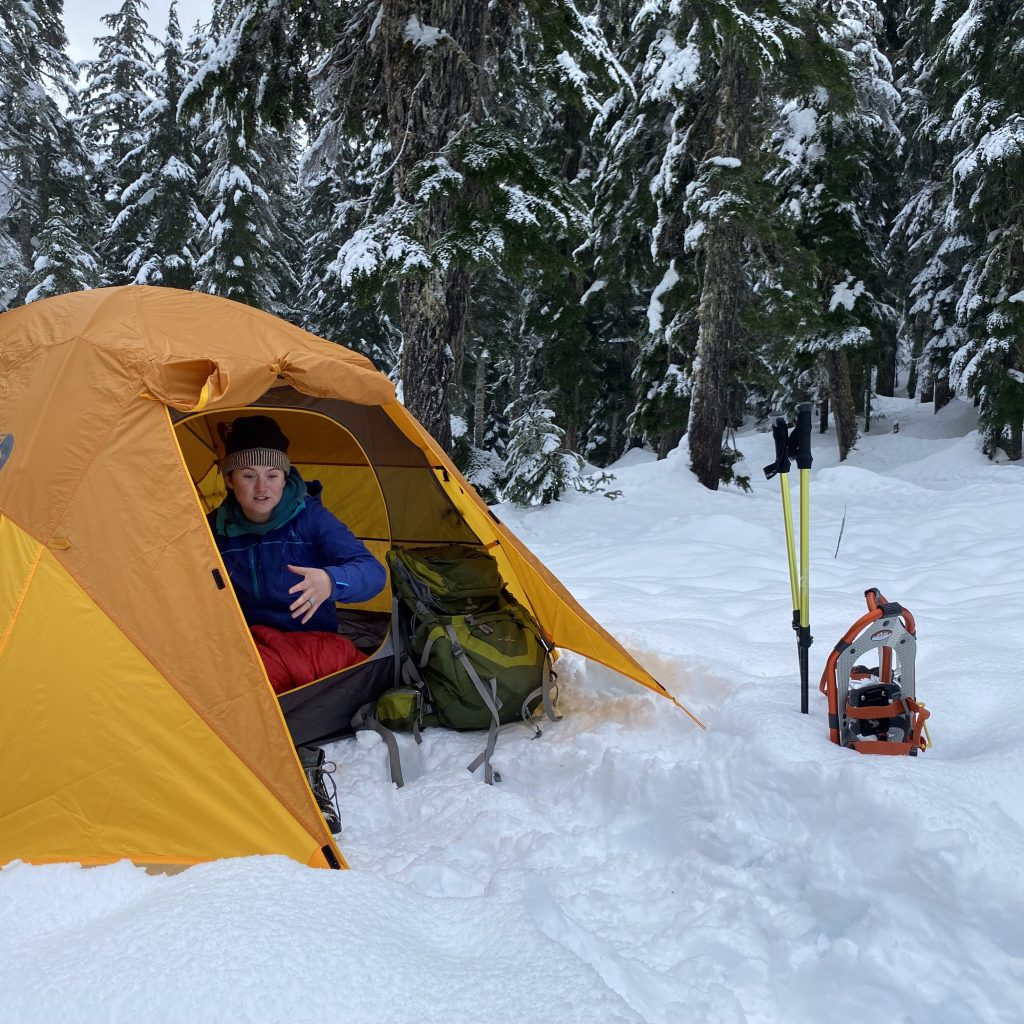
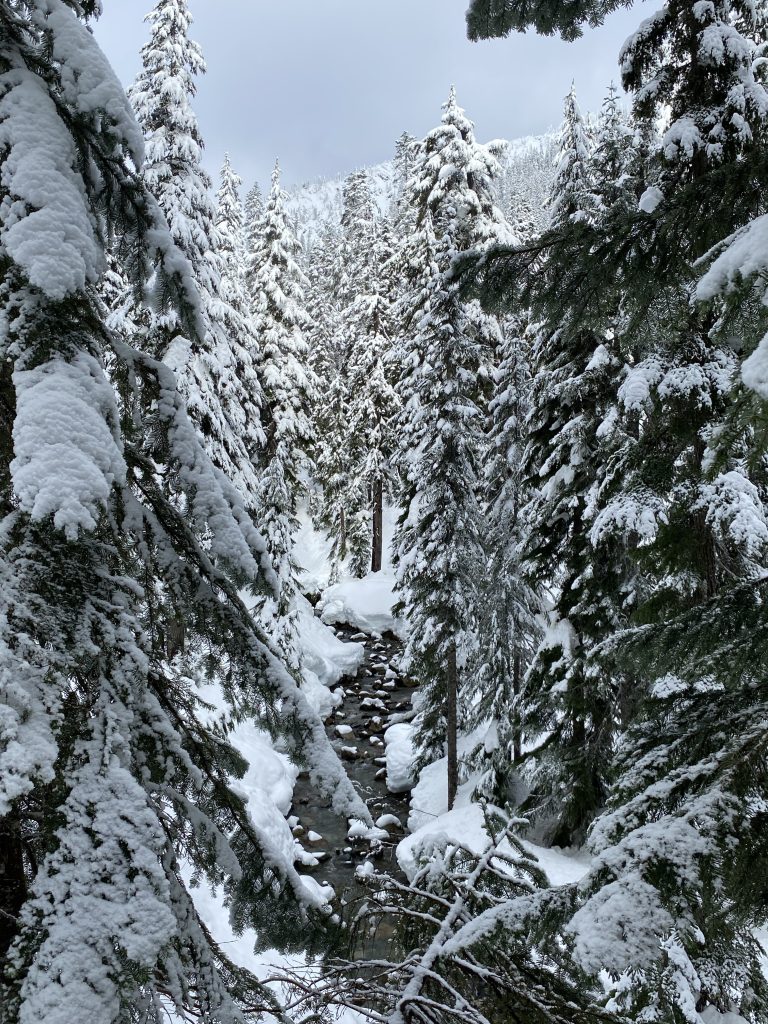
Indigenous Land
Snoqualmie
“It is through education and awareness that individuals can integrate land acknowledgement and respect for the Snoqualmie Tribe into their recreational practices and experiences.”
Snoqualmie Tribe Ancestral Land Movement
The Ancestral Lands Movement seeks to spread awareness of the Snoqualmie people who have lived in the southern Salish Sea region since time immemorial and share the significance of these lands and provide information on how people can help the Tribe in respecting, restoring, and protecting these lands.
As the Salish Sea region has grown in population, the Snoqualmie Tribe’s Ancestral Lands have been heavily impacted by recreation. This impact is especially apparent at the popular trails in the Snoqualmie corridor area, where increased visitation has resulted in a degradation of the land.
Here are simple steps everyone can take while recreating on Snoqualmie Tribe Ancestral Lands to practice respect and help the Tribe in protecting and restoring these lands for generations to come:
- Help the Tribe spread its message by encouraging others to learn more and practice land acknowledgement both on and off the trails.
- Treat the lands with the respect they deserve, by picking up your own trash, and that of others that you see, properly disposing of pet waste, and staying on designated trails.
- Commit to experience the lands in a way that is centered in mindfulness, rather than conquest.
Learn more about the Snoqualmie Tribe and its history and deep connection to these lands, and support the work the Tribe does today to continue stewarding these lands. - Acknowledge that you are recreating on Snoqualmie ancestral lands through both written acknowledgement and through practice.
Learn more about the Snoqualmie Ancestral Lands Movement at snoqualmietribe.us
